|
Verb Tenses
(Present Tenses )
|
| |
ดังได้กล่าวมาในบท Verb Tense ( Types ) แล้วว่า Verb Tense มีทั้งหมด 12 รูปใน active voice ในบทนี้จะได้กล่าวถึงการใช้ Present tenses ทั้ง 4 รูปคือ Simple present , Present progressive, Present perfect,และ Present perfect progressive.
1.Simple Present Tense
โครงสร้าง
Subject + auxiliary verb ( do ) + main verb ( base )
ประธาน + กริยาช่วย ( do) + กริยาหลักช่อง 1
|
ดังตัวอย่าง
| |
ประธาน |
กริยาหลัก |
|
|
| + บอกเล่า |
I |
am |
|
French. |
| You, we, they |
are |
|
French. |
| He, she, it |
is |
|
French. |
| - ปฏิเสธ |
I |
am |
not |
old. |
| You, we, they |
are |
not |
old. |
| He, she, it |
is |
not |
old. |
| ? คำถาม |
Am |
I |
|
late? |
| Are |
you, we, they |
|
late? |
| Is |
he, she, it |
|
late? |
การใช้ ใช้ Simple Present tense เมื่อ
- เป็นการกระทำ/เหตุการณ์ที่เป็นจริงโดยทั่วไป เช่น
The Moon goes round the Earth.
Birds fly.
Sugar is sweet.
- เป็นการบรรยายการกระทำ/เหตุการณ์ที่เกิดขึ้นในขณะที่พูด
John waits patiently while Bridget books the tickets.
He needs help right now.
I'm here now.
The car is clean
- เป็นกระทำที่เกิดขึ้นตลอดเวลา เป็นกิจวัตร ทั้งในอดีต ปัจจุบัน และอนาคต เช่น
He gets up early every day.
I play football every Sunday.
- เป็นการกระทำที่กำหนดแน่นอนว่า จะกระทำในอนาคต โดยใช้ ร่วมกับ adverb หรือ adverbial phrase เช่น
The doors open in 10 minutes.
John arrives on Tuesday.
มีข้อยกเว้นดังนี้
- สำหรับประโยคบอกเล่า ( positive ) ปกติจะไม่ใช้กริยาช่วย ( นอกจากต้องการเน้นเช่น I do love you )
- สำหรับประธานเอกพจน์บุรุษที่ 3 ( he, she, it ) เติม s ที่กริยาหลัก และเติม es ที่กริยาช่วย
- สำหรับ verb to be ที่เป็นกริยาหลัก ปกติจะไม่มีกริยาช่วย แม้ในประโยคปฏิเสธ หรือประโยคคำถาม
ตามตัวอย่างในตารางต่อไปนี้
| |
ประธาน |
กริยาช่วย |
|
กริยาหลัก |
|
+
บอกเล่า |
I, you, we, they |
|
|
like |
coffee. |
| He, she, it |
|
|
likes |
coffee. |
-
ปฏิเสธ |
I, you, we, they |
do |
not |
like |
coffee. |
| He, she, it |
does |
not |
like |
coffee. |
?
คำถาม |
Do |
I, you, we, they |
|
like |
coffee? |
| Does |
he, she, it |
|
like |
coffee? |
verb to be ที่เป็นกริยาหลัก ปกติจะไม่มีกริยาช่วย แม้ในประโยคปฏิเสธ หรือประโยคคำถามดังนี้
2. Present Progressive ( continuous )
โครงสร้าง
Subject + auxiliary verb ( be ) + main verb ( base+ ing)
ประธาน + กริยาช่วย (be ) + กริยาหลักช่อง 1 เติม ing
|
ดังตัวอย่าง
| |
ประธาน |
กริยาช่วย |
|
กริยาหลัก |
|
| + บอกเล่า |
I |
am |
|
speaking |
to you. |
| + บอกเล่า |
You |
are |
|
reading |
this. |
| - ปฏิเสธ |
She |
is |
not |
staying |
in London. |
| - ปฏิเสธ |
We |
are |
not |
playing |
football. |
| ? คำถาม |
Is |
he |
|
watching |
TV? |
| ? คำถาม |
Are |
they |
|
waiting |
for John? |
การใช้
- ใช้กับเหตุการณ์หรือการกระทำที่กำลังดำเนินการอยู่ อาจมี adverb ในรูปคำเดียวหรือกลุ่มคำมาร่วมด้วย เช่น
The sun is shining.
I am having dinner at this moment.
- ใช้กับเหตุการณ์ในอนาคตอันใกล้ซึ่งคาดว่าจะต้องเกิดแน่นอน โดยมีคำบอกอนาคตร่วมด้วย เป็นการใช้เช่นเดียวกับ Future Simple
I am taking my exam next month.
We are going to Chiang Mai tomorrow.
- ใช้กับการกระทำที่เกิดขึ้นในอดีต ถึงปัจจุบันและจะต่อไปในอนาคตเป็นระยะยาว เช่น
My son is working hard this semester.
I am studying to become a doctor.
- ใช้กับการกระทำที่เกิดซ้ำซาก โดยใช้ร่วมกับ always , constantly เป็นต้น
I don't like them because they are always complaining.
He is constantly talking. I wish he would shut up.
หมายเหตุ
ปกติถ้าเราพูด I always do something หมายถึงการทำอย่างนั้นทุกครั้ง แต่ถ้าใช้ I always doing somthing หมายถึงเป็นการทำบ่อยๆแต่ไม่ใช่ทุกครั้ง เช่น
I've lost my key again. I'm always losing thing.
ฉันทำกุญแจหายอีกแล้ว ฉันทำของหายบ่อย ( แต่ไม่ได้หายทุกครั้ง )
You're always watching television. You should do something more active.
คำกริยาที่ไม่สามารถนำมาใช้ในลักษณะ Continuous Tenses ได้ ดูรายละเอียดที่นี่
3. Present Perfect
โครงสร้าง
Subject + auxiliary verb ( has,have ) + main verb ( past participle )
ประธาน + กริยาช่วย (has,have) + กริยาหลักช่อง 3
|
ดังตัวอย่าง
| |
ประธาน |
กริยาช่วย |
|
กริยาหลัก |
|
| + บอกเล่า |
I |
have |
|
seen |
this movie. |
| + บอกเล่า |
You |
have |
|
eaten |
mine. |
| - ปฏิเสธ |
She |
has |
not |
been |
to Rome. |
| - ปฏิเสธ |
We |
have |
not |
played |
football. |
| ? คำถาม |
Have |
you |
|
finished? |
|
| ? คำถาม |
Have |
they |
|
done |
it? |
การใช้
- ใช้แสดงการเปลี่ยนแปลงของเหตุการณ์
|
I have bought a car. แสดงว่า
|
อดีต ฉันไม่มีรถ
ปัจจุบัน ฉันมีรถ
|
| John has broken his leg. แสดงว่า |
อดีต จอนยังมีขาดีอยู่
ปัจจุบัน จอนขาหัก |
| The police have arrested the killer. แสดงว่า |
อดีต ฆาตกรยังลอยนวลอยู่
ปัจจุบัน จับฆาตรกรได้แล้ว |
| The clock has stopped. |
อดีต นาฬิกายังเดินอยู่
ปัจจุบัน นาฬิกาหยุดเดินแล้ว |
- ใช้กับเหตุการณ์หรือการกระทำที่เกิดขึ้นไปแล้ว และผลการกระทำยังแสดงให้เห็นจนปัจจุบัน ประโยคคล้ายกับข้อแรก แต่ผู้พุดต้องการเน้นความต่างกัน ในข้อแรกแสดงว่ามีการเปลี่ยนแปลงของเหตุการณ์ แต่ในข้อนี้ต้องการแสดงว่า การเปลี่ยนแปลงนั้นยังคงอยู่
I've lost my keys. ฉันได้ทำกุญแจหาย ( ขณะนี้ก็ยังหาไม่เจอ )
I've closed the windows. ฉันปิดหน้าต่าง ( ขณะนี้หน้าต่างยังปิดอยู่ )
The train has arrived. รถไฟมาถึงสถานีแล้ว ( ขณะนี้ก็ยังจอดอยู่ที่สถานี )
- ใช้กับเหตุการณ์ที่เกิดขึ้นในอดีตและดำเนินต่อเนื่องมาจนถึงปัจจุบัน ปกติจะมีกลุ่มคำหรือประโยคบอกว่าเหตุการณ์นั้นเกิดมาตั้งแต่เมื่อไร เช่น since, for, ever since, so far, recently, in the last few days เป็นต้น
I have lived in Bangkok since 1960.
I have lived in Bangkok for twenty-four years.
I 've met a lot of people in the last few days.
Have you heard from George recently?
- ใช้แสดงอาการเคย หรือ ไม่เคยทำในอดีต ซึ่งไม่ได้บอกเวลาแน่นอนไว้ มักจะมี adverbs เช่น ever,never, once... ร่วมอยู่ด้วย
Have you ever been to Thailand?
I've never seen him before.
- ใช้กับเหตุการณ์ที่เพิ่งจบลงใหม่ๆ มักจะมีคำ just, already , หรือ yet กำกับ
The train has just arrived.
The train has already arrived.
Has the train arrived yet ?
หมายเหตุ จำการใช้ประโยคต่อไปนี้
Don is having a driving lesson. It's the first time he has driven a car. ( ไม่ใช่ drives )
Linda has lost her passport again. It's the second time this has happened. ( ไม่ใช่ happens )
Bill is phoning his girlfriend again. That's the third time he has phoned her this evening.
4. Present Perfect Progressive ( continuous )
โครงสร้าง
Subject + auxiliary verb ( have ) +auxiliary verb (been )+ main verb ( base+ ing)
ประธาน + กริยาช่วย (have ) + กริยาช่วย ( been) + กริยาหลักช่อง 1 เติม ing
|
ดังตัวอย่าง
| |
ประธาน |
กริยาช่วย |
|
กริยาช่วย |
กริยาหลัก |
|
| + บอกเล่า |
I |
have |
|
been |
waiting |
for one hour. |
| + บอกเล่า |
You |
have |
|
been |
talking |
too much. |
| - ปฏิเสธ |
It |
has |
not |
been |
raining. |
|
| - ปฏิเสธ |
We |
have |
not |
been |
playing |
football. |
| ? คำถาม |
Have |
you |
|
been |
seeing |
her? |
| ? คำถาม |
Have |
they |
|
been |
doing |
their homework? |
การใช้
- ใช้กับเหตุการณ์ในอดีตต่อเนื่องจนถึงปัจจุบัน คล้ายกับ Present Perfect แต่จะเน้นความต่อเนื่องของเวลามากกว่า
I've been reading for 2 hours. ฉันอ่าน (หนังสือ)มาได้ 2 ชั่วโมงแล้ว ( ยังอ่านอยู่และน่าจะอ่านต่อไป)
เปรียบเทียบกับ I've read for 2 hours. ฉันอ่านมา2 ชั่วโมงแล้ว ( ไม่รู้จะอ่านต่อไปหรือไม่ )
We've been working since 9 o'clock. เราทำงานมาตั้งแต่ 09.00 น. ( ยังทำอยู่และน่าจะทำต่อไป)่
She has been watching too much television lately.
Mary has been feeling a little depressed .
- ใช้กับการกระทำที่เพิ่งจบลงเร็วๆนี้ มีความเกี่ยวพันกับปัจจุบัน
I'm tired [now] because I've been running. ฉันเหนื่อย(ขณะนี้) เพราะไปวิ่งมา (วิ่งเสร็จแล้ว )
Why is the grass wet [now]? Has it been raining? ทำไมหญ้าเปียก ( ขณะนี้) ฝนตกหรือเปล่า ( ฝนหยุดแล้ว)
You don't understand [now] because you haven't been listening. คุณไม่เข้าใจ (ขณะนี้ ) เพราะคุณไม่ฟัง(ที่ผ่านมา )
It's been raining and my hair is still wet.
I’ve been reading all afternoon. I’ve just finished the book.
Who's been sleeping in my bed?
หมายเหตุ กริยาที่ไม่แสดงความต่อเนื่องของการกระทำ จะใช้ Present Perfect Progressive ไม่ได้ ให้ใช้ Present Perfect
The train has arrived . ไม่ใช้ The train has been arriving .
I've wanted to visit China for years. ไม่ใช้ I've been wanting....
She's known Robert since she was a child. ไม่ใช้ She's been knowing.....
I've hated that music since I first heard it. ไมใช้ I've been hating.....
I've heard a lot about you recently. ไม่ใช้ I've been hearing.....
We've understood everything we've heard this morning. ไมใช้ We've been understanding.....
|
ที่มา http://ict.moph.go.th/English/content/verb03_present.htm
บ้านน็อคดาวน์ทรงโมเดิร์น
฿65,000https://s.shopee.co.th/2Vm01N027C?share_channel_code=6
Advertisement

เปิดอ่าน 39,027 ครั้ง 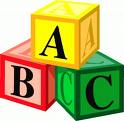
เปิดอ่าน 344,616 ครั้ง 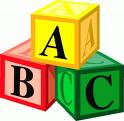
เปิดอ่าน 41,812 ครั้ง 
เปิดอ่าน 237,362 ครั้ง 
เปิดอ่าน 20,761 ครั้ง 
เปิดอ่าน 26,184 ครั้ง 
เปิดอ่าน 37,842 ครั้ง 
เปิดอ่าน 50,755 ครั้ง 
เปิดอ่าน 318,813 ครั้ง 
เปิดอ่าน 24,945 ครั้ง 
เปิดอ่าน 240,934 ครั้ง 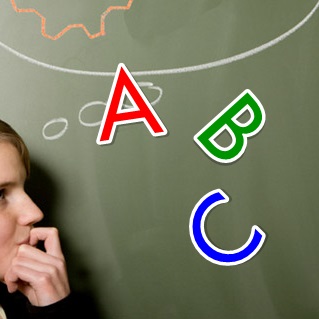
เปิดอ่าน 17,649 ครั้ง 
เปิดอ่าน 19,753 ครั้ง 
เปิดอ่าน 17,501 ครั้ง 
เปิดอ่าน 8,041 ครั้ง 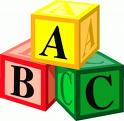
เปิดอ่าน 22,245 ครั้ง |

เปิดอ่าน 41,812 ☕ คลิกอ่านเลย |

เปิดอ่าน 17,424 ☕ คลิกอ่านเลย | 
เปิดอ่าน 157,182 ☕ คลิกอ่านเลย | 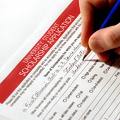
เปิดอ่าน 32,482 ☕ คลิกอ่านเลย | 
เปิดอ่าน 103,339 ☕ คลิกอ่านเลย | 
เปิดอ่าน 19,784 ☕ คลิกอ่านเลย | 
เปิดอ่าน 240,934 ☕ คลิกอ่านเลย |
|
≡ เรื่องน่าอ่าน/สาระน่ารู้ ≡ 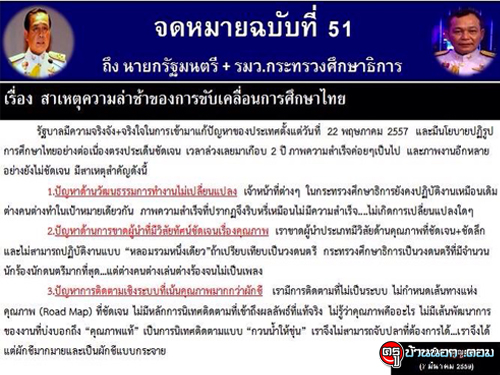
เปิดอ่าน 13,432 ครั้ง | 
เปิดอ่าน 4,509 ครั้ง | 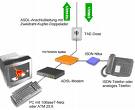
เปิดอ่าน 16,352 ครั้ง | 
เปิดอ่าน 22,768 ครั้ง | 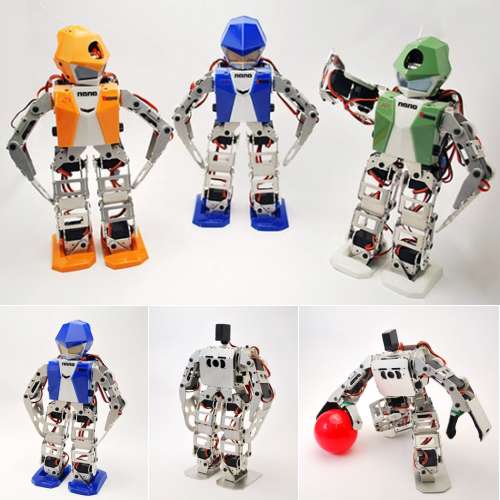
เปิดอ่าน 10,883 ครั้ง |
|
|









